#mexico church
Explore tagged Tumblr posts
Text
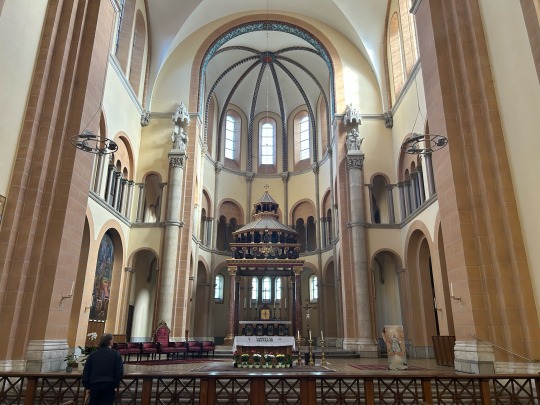

St. Francis of Assisi Church - Vienna, Austria
#franz von assisi kirche#st. francis of assisi church#kaiserjubiläumskirche#emperor's jubilee church#mexikokirche#mexico church#vienna#wien#austria#österreich#church#historical buildings#art nouveau#art nouveau architecture#art nouveau aesthetic#vienna photography#photography#syna's photography
26 notes
·
View notes
Text


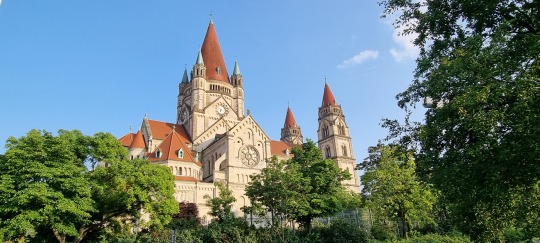
St. Francis of Assisi Church, also known as the Emperor's Jubilee Church and the Mexico Church, is a Basilica-style Catholic church in Vienna, Austria. Built between 1898 and 1910, it is located on the Mexikoplatz in Vienna's second district, Leopoldstadt, and is administered by the Order of the Holy Trinity. Die Pfarrkirche zum heiligen Franz von Assisi, auch Kaiserjubiläumskirche bzw. umgangssprachlich Mexikokirche, ist eine 1910 fertiggestellte römisch-katholische Pfarrkirche im 2. Wiener Gemeindebezirk Leopoldstadt am Mexikoplatz. Die Kirche wird seit 1917 vom Trinitarier-Orden betreut. Церковь Франциска Ассизского, известная также как «Церковь императорского юбилея» и «Мексиканская церковь» — римско-католическая церковь в столице Австрийской республики Вене, в районе Леопольдштадт на площади Мексикоплац. С 1917 года за церковью ухаживает Орден Пресвятой Троицы (Тринитарии). L'église Saint-François-d'Assise de Vienne, également L'église du jubilé impérial, familièrement L'église mexicaine, est une église paroissiale catholique romaine située dans le quartier viennois de Leopoldstadt sur Mexikoplatz. L'église est entretenue par l'Ordre des Trinitaires depuis 1917.
#Kirche zum heiligen Franz von Assisi#Kaiserjubiläumskirche#Mexikokirche#2. Bezirk#Leopoldstadt#Mexikoplatz#Wien#Österreich#Trinitarier-Orden#St. Francis of Assisi Church#Emperor's Jubilee Church#Mexico Church#Vienna#Austria#2nd district#Order of the Holy Trinity#Церковь Франциска Ассизского#Церковь императорского юбилея#Мексиканская церковь#Австрия#Вена#Леопольдштадт#Мексикоплац#Орден Пресвятой Троицы#Тринитарии#Église Saint-François-d'Assise#Vienne#Église du jubilé impérial#Église mexicaine#Autriche
2 notes
·
View notes
Text

Church and cross, Chilili, New Mexico, Harold Allen, 1955
225 notes
·
View notes
Text

Santuario de Chimayo, Chimayo, New Mexico
Negative Number: 008931
226 notes
·
View notes
Text

Loving Kindness
68 notes
·
View notes
Text

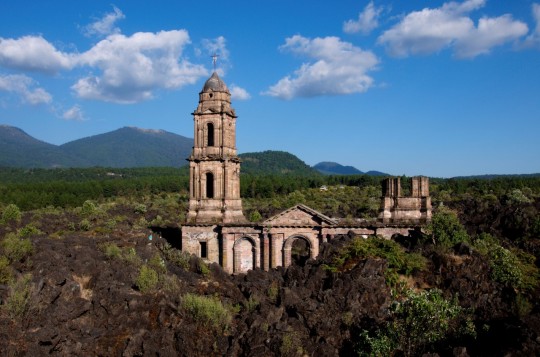



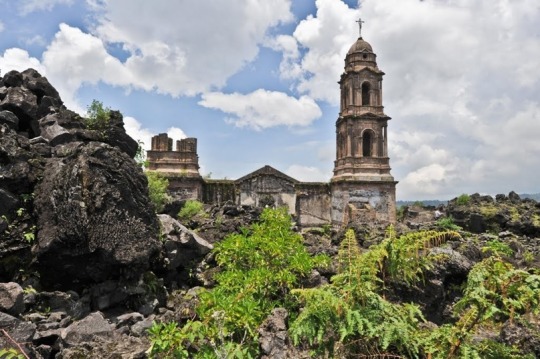





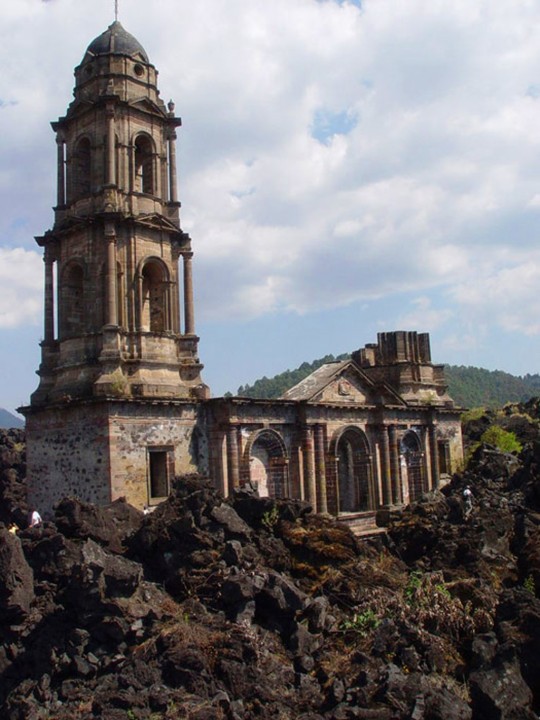


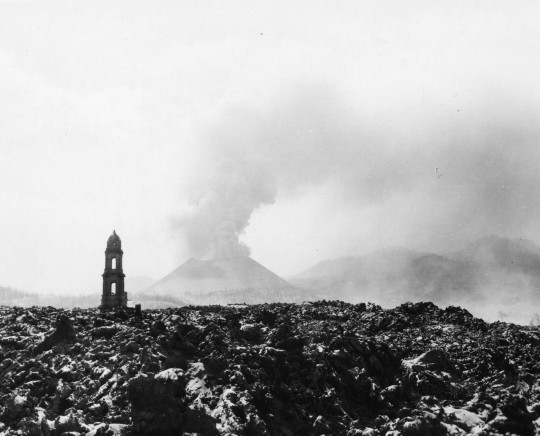
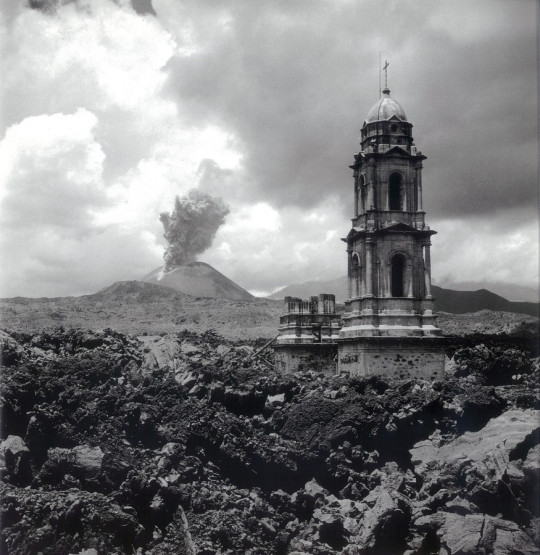
Церковь в вулканической лаве.
Церковь Сан-Хуан-Парангарикутиро расположена на западе мексиканского штата Мичоакан, была погребена под лавой вулкана Парикутин в 1944 году. Потоки лавы высотой в несколько метров полностью уничтожили деревню. Чудом остались нетронутыми алтарь и церковная колокольня, окруженные руинами храмового комплекса. Шпиль колокольни, торчащий посреди покрытого черной лавой безжизненного ландшафта, является частью удивительного пейзажа: на многие километры торчащие конусы застывшей лавы напоминают иноземные картины. Лучшие виды на церковь Сан-Хуан-Парангарикутиро открываются из деревни Ангауан (Angahuan).
Каждую весну, перед Пасхой, жители соседней деревни Нуэво-Сан-Хуан-Парангарикутиро (Nuevo San Juan Parangaricutiro), расположенной в 23 км от Сан-Хуан-Парангарикутиро, отмечают день рождения вулкана, совершая паломничество и принося цветы к алтарю разрушенной церкви. Туристы могут присоединиться к шествию. В сохранившейся колокольне несколько раз в год проводятся музыкальные фестивали, праздники и религиозные службы.
Church in volcanic lava.
The Church of San Juan Parangaricutiro is located in the western Mexican state of Michoacan, was buried under the lava of the Paricutin volcano in 1944. Lava flows several meters high completely destroyed the village. Miraculously, the altar and the church bell tower remained intact, surrounded by the ruins of the temple complex. The spire of the bell tower, sticking out in the middle of a lifeless landscape covered with black lava, is part of an amazing landscape: cones of solidified lava sticking out for many kilometers resemble foreign paintings. The best views of the Church of San Juan Parangaricutiro open from the village of Angahuan.
Every spring, before Easter, the inhabitants of the neighboring village of Nuevo San Juan Parangaricutiro, located 23 km from San Juan Parangaricutiro, celebrate the volcano's birthday by making a pilgrimage and bringing flowers to the altar of the ruined church. Tourists are welcome to join the procession. The surviving bell tower hosts music festivals, celebrations, and religious services several times a year.
Источник:/masterok.livejournal.com/2208737.html,/morethantravel.livejournal.com/tag/Сан-Хуан-Парангарикутиро?utm_medium= endless_scroll,/vk.com/@zabroshenoevk-cerkov-san-huan1-parangarikutiro-v-meksike,https://dzen.ru/a/YbEM_-dT3TK38JYa, /www.travel.ru/wow/san_juan _parangaricutiro.html.
#Мексика#заброшенные места#Заброшенное#пейзаж#церковь#Сан-Хуан-Парангарикутиро#архитектура#извержение#лава#вулкан#Парикутин#Mexico#Architecture#church#San Juan Parangaricutiro#landscape#eruption#volcano#Paricutin#lava#abandoned#abandonedplaces#abandonedbuilding#abandoned photography#lost in time
146 notes
·
View notes
Text
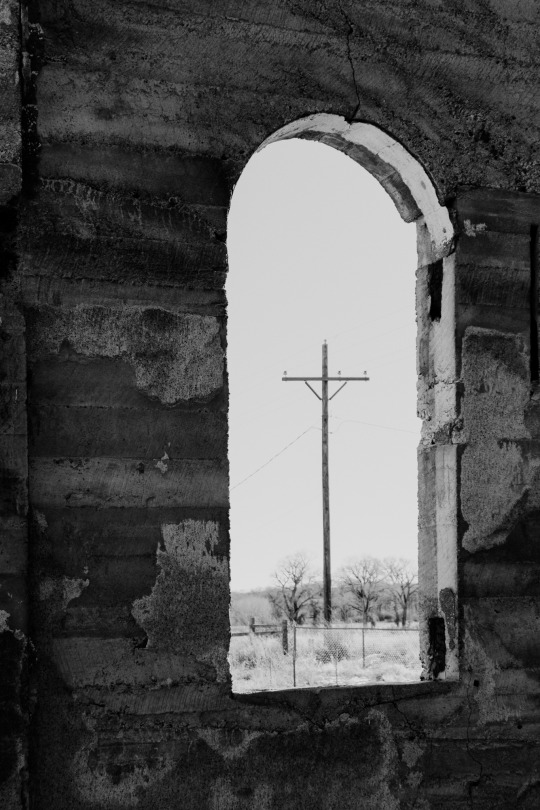
antonio, co
#photographer#photography#photographers on tumblr#southwestern#regional gothic#indie photography#antonio co#antonio#catholic church#abandoned#colorado photographer#colorado photography#not new mexico#fujixseries#fujifilm#ilford#black and white#b&w#b&w photography#road trip#regional modern#regional photography#american southwest#southwestern gothic#southwest
71 notes
·
View notes
Text
St. Francis of Assisi Church (aka the Emperor's Jubilee Church and the Mexico Church), Vienna, Austria

1 note
·
View note
Text

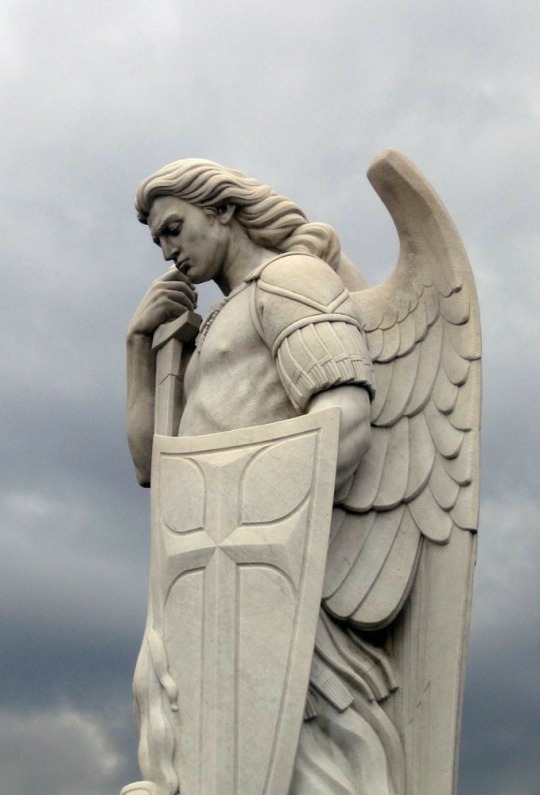
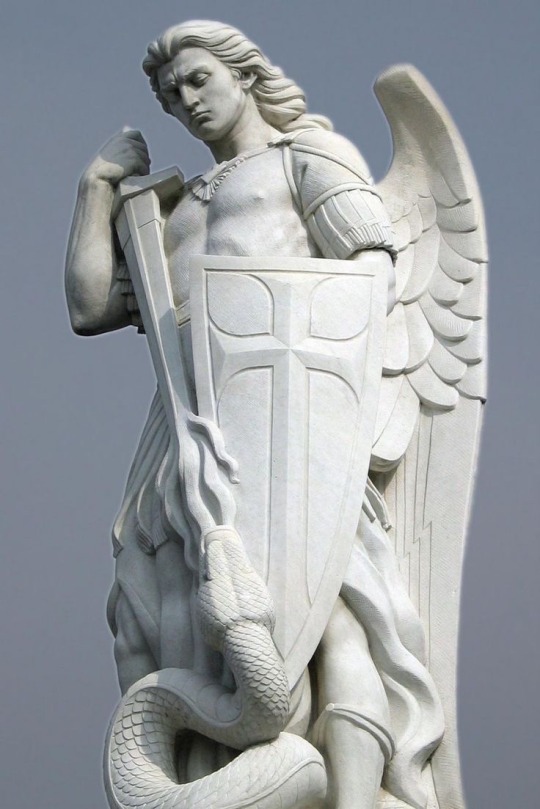
St. Michael, Tepeyac Hill, Mexico City
#tepeyachill#mexico#mexico city#art#escultura#esculpture#archangel michael#st michael#catholic#catholiscism#catholic church#virgen de guadalupe
261 notes
·
View notes
Text

THE LONG ROAD TO SANTA FE
Conceptual painting of the San Miguel Mission in Santa Fe, the oldest church structure in America - circa 1610.
103 notes
·
View notes
Text


San Miguel Chapel, first built in 1610, with 1710 reconstruction. Said to be the oldest church building in the United States.
Santa Fe, New Mexico
2017
#San Miguel Chapel#adobe#new mexico#santa fe#santa fe style#southwestern#travel#architecture#original photography#photographers on tumblr#photography#lensblr#urbanexploration#urban exploration#church#chapel#church architecture#church photography#wanderingjana
56 notes
·
View notes
Text
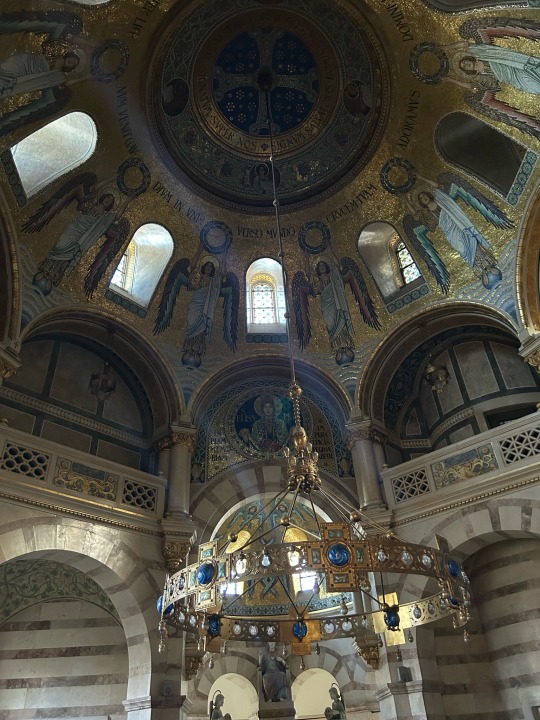
Elisabethkapelle, St. Francis of Assisi Church - Vienna, Austria
#elisabethkapelle#elizabeth chapel#franz von assisi kirche#st. francis of assisi church#kaiserjubiläumskirche#emperor's jubilee church#mexikokirche#mexico church#vienna#wien#austria#österreich#church#historical buildings#art nouveau#art nouveau architecture#art nouveau aesthetic#vienna photography#photography#syna's photography
25 notes
·
View notes
Text

Moon over Church - Eaves Movie Ranch - Santa Fe, NM
Gary Tucker on Flickr
#Southwestern#western goth#western gothic#moon#gothic#american gothic#photography#southern gothic#New Mexico#church
112 notes
·
View notes
Text
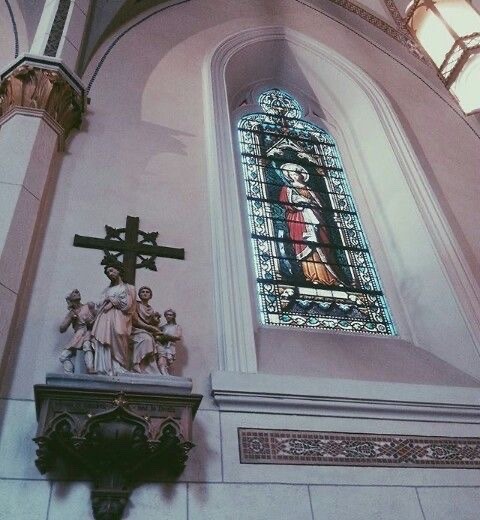
loretto chapel, santa fe, new mexico
#catholic#catholic saints#virgin mary#mother mary#saint art#stained glass#church#theology#christianity#christian faith#christian blog#catholic art#christian art#catholiscism#new mexico#santa fe#architecture#pink aesthetic#angelcore#coquette#religious aesthetic#religon#religious imagery#religious art#religion#orthodox christianity#christian aesthetic#catholic aesthetic
202 notes
·
View notes
Text

The Catholic Church of San Albino (built 1852), Mesilla, New Mexico
Photographer: Stiles & Burke, published by Bennett & Brown Date: 1881 Negative Number: 014299
54 notes
·
View notes
